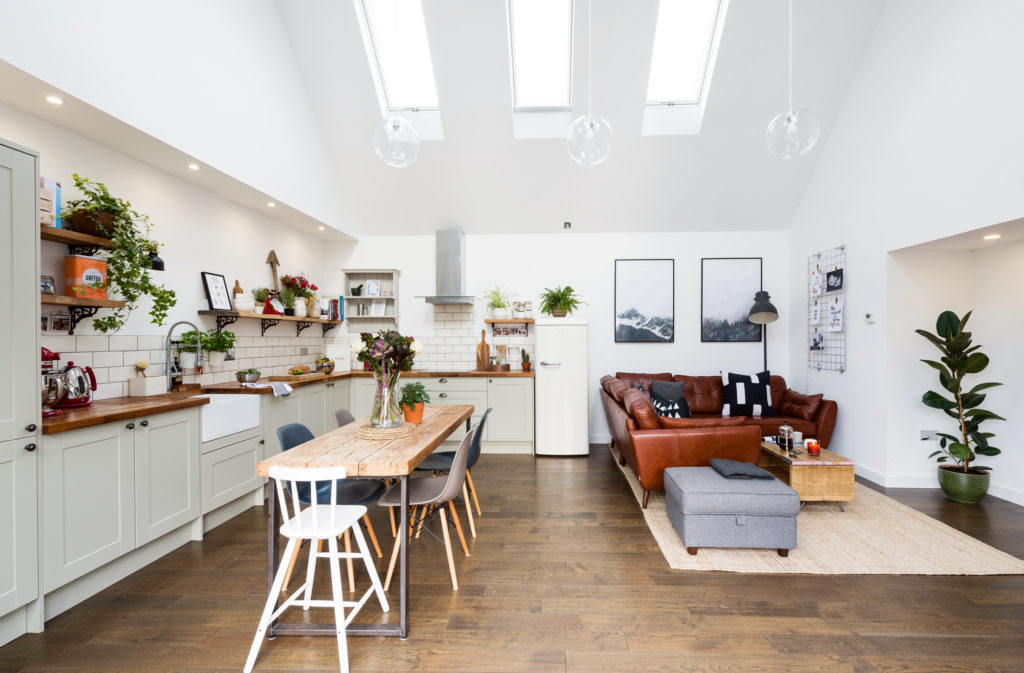If you’re getting ready for a home renovation, you’re probably feeling pretty excited. Home remodels mean that you can get the home of your dreams, but it’s a lot of stress and pressure at the same time. The best thing you can do to reduce the stress during the remodel itself is to be as prepared as possible. You want to make sure that you’re patient and that you create a roadmap for yourself.
The following are some important things to get your home and yourself ready for a remodel or renovation.
1. Audit Your Belongings
The first thing to do before a home renovation project is to start to audit your belongings. You want a list of everything that’s permanent in your home. You can use this list for insurance purposes if you ever need it. It also gets easier to clear things out when you decide what you’re willing to part with.
From there, once you have an idea of what you’re going to keep and what’s going to go, you should find a storage solution. You might be storing items in portable storage or in a spare room, but for larger-scale renovations, you’ll probably need to find affordable storage units you can rent. That will keep your belongings out of the way and safe.
Once you think about what you might store, you’ll also want to figure out what needs to stay within close reach for you during the renovation.
You can cut down on the things you have to pack by using what you already have. For example, try to go through your pantry and use as many of those items as you can for meals leading up to your renovation so that you don’t have to pack these things.
If you’re doing a large-scale renovation, you might think about hiring a professional organizer. They can help you make inventories of your items, and they can also make sure that everything is going to have a place when the project is finished.
2. Prepare for Chaos
There are certain things you aren’t going to be able to do much about. Dealing with dust is one of those things. There is going to be dust that settles on almost everything in your home, and while you can’t eliminate it, you can minimize it. You can use zipper doors on your hallways and on the doors between the area being renovated and what’s not.
If a room isn’t being used often, you can add towels or clothes to the gap between the door and the floor. You should also close the vents in these rooms.
Cover your floors with paper, and if you’re staying in your home during the remodel, make sure you dust every day.
You should also have weekly check-ins set up with your design or construction teams so that you can be prepared for the week ahead and the unexpected that will inevitably arise.

3. Will You Stay or Go?
Deciding whether to stay or go during a renovation can be a tough decision. If you can move out during any renovation, that’s ideal because the dust and noise are not easy to deal with. Not everyone can logistically move out, though, or has the budget to do so.
If more than 60% of your home is being renovated or you can’t easily divide the space between construction and renovation, you should try your best to leave.
If you are going to stay, your contractor can take certain steps that make it easier for you and provide separation between where you’re going to live and the construction area.
If you are going to stay, you’ll need to set up a temporary space for the one that’s being remodeled. For example, if you’re doing a kitchen remodel, make sure you have a space for a temporary kitchen with a setup for coffee, a hot plate, and maybe a shelf where you can store pantry items. A garage can make a good place for a temporary kitchen.
If it’s a bedroom that’s being remodeled, set up a space with cardboard drawers and a garment rack at a minimum.
4. Have a Security Plan
You’re going to have strangers in and out of your house during a renovation. You need a security plan. This should include a place to store valuables. You need an in-home safe where you can put your most important documents and other items. You should also use a video doorbell. This will help you keep track of who’s coming and going throughout the project, and you can also monitor deliveries if you aren’t going to live in your house.
Smart locks are a good thing to install before a renovation because you can program them to allow access to your contractors for a certain amount of time, and you can then change them when the renovation is done.
5. Have As Much As You Can Onsite
It’s best when you’re going through a renovation to have as many of your materials onsite as you can. You might be doing the demo yourself, but you need to have as much on-site as you possibly can before starting the demo. Not having even one small item on site can hold up your entire project.
6. Have an Appliance Plan
Your appliances may be out of service for a period of time if you’re remodeling your kitchen or laundry area. For kitchen appliances, it can be worth the money to buy small downgrades. For example, a countertop convection oven and a mini refrigerator can be helpful during a reno.
Make sure that any appliances you’re going to use will work with standard 120v outlet receptacles.
7. Other Things to Remember
A few other things to keep in mind to prepare your home for a renovation include:
- Set up a room for your pet if they’re going to be at home during the day while workers are there.
- Roll up area rugs throughout your house to keep them clean.
- You can cover furniture with fitted bedsheets.
Finally, if possible, try to plan to adapt your home so that it becomes easier to use other available entryways.






